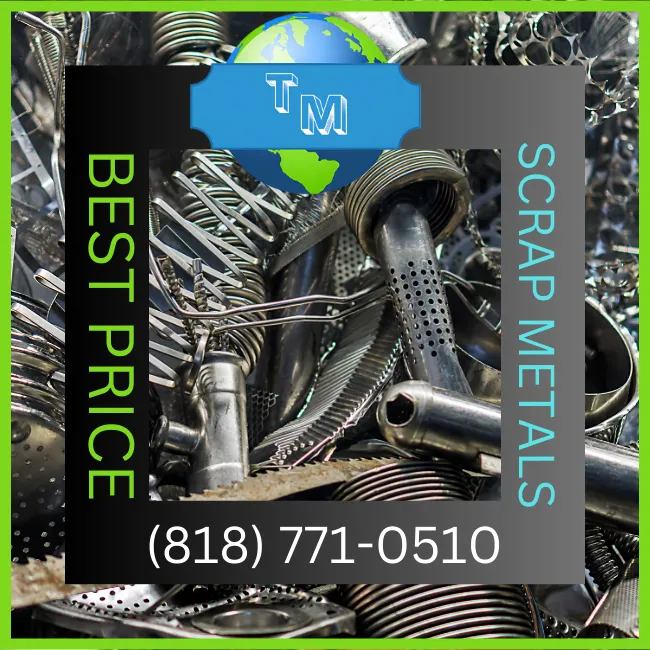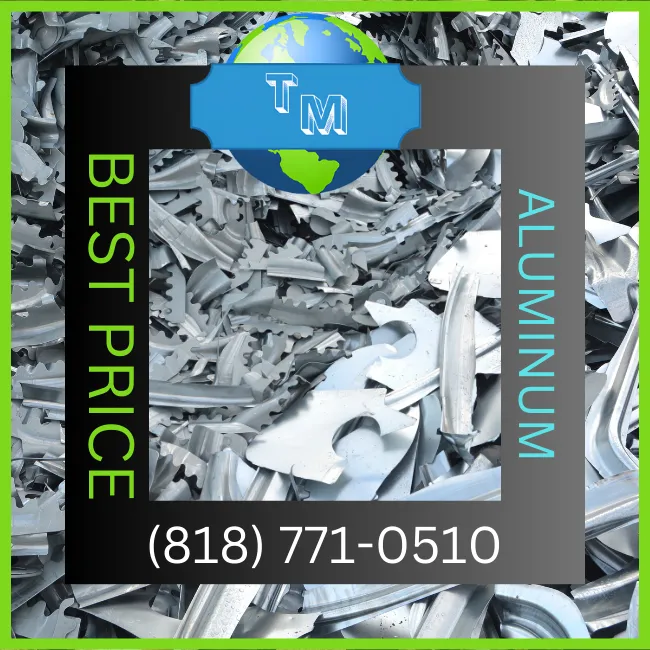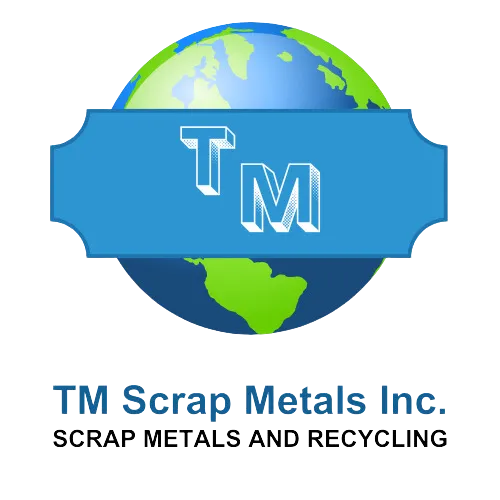Sponsored





Metal Recycling in Sun Valley
Local Experts In Recycling Ferrous & Non-ferrous Metals
Looking for dependable metal recycling services in Sun Valley? Our directory features top-rated local recyclers who handle a wide range of metals, including copper, aluminum, steel, and more. Get fast, eco-friendly service with fair market pricing and easy drop-off or pickup options. Explore trusted Sun Valley metal recyclers and start recycling today!
Metal Recycling in Sun Valley: Why Hire a Professional Metal Recycling Service
The Smart Choice for Efficient Metal Waste Management and Environmental Stewardship
The Importance of Metal Recycling in Sun Valley
Metal recycling in Sun Valley is essential for both environmental and economic reasons. As a diverse and rapidly growing community, Sun Valley generates significant quantities of metal waste through residential, commercial, and industrial activities. Proper recycling ensures that valuable resources like steel, copper, and aluminum are not lost to landfills.
Metals are among the most reusable materials available, and with the right processing, they can be repurposed indefinitely. Hiring a professional metal recycling service ensures that these materials are handled responsibly and redirected into the supply chain in a way that maximizes their value and reduces ecological harm.
Why Hire a Professional Metal Recycling Service
Working with a professional metal recycling service in Sun Valley offers numerous advantages. These companies are equipped to handle the logistics, sorting, and compliance required to recycle metal safely and effectively. This is especially important when dealing with large volumes or mixed metal types.
Professionals use specialized tools and have the expertise to assess metal quality and value accurately. They can also ensure safety measures are followed, preventing injuries and avoiding exposure to hazardous materials. Moreover, they stay up-to-date with recycling regulations and market pricing.
Perhaps most importantly, professional services enhance your contribution to environmental protection. Recycling metals significantly reduces greenhouse gas emissions and conserves natural resources by lowering the need for virgin material extraction.
Finding the Right Metal Recycling Service in Sun Valley
Choosing the right metal recycling service in Sun Valley means looking for certified, experienced, and locally recognized providers. These companies should demonstrate a commitment to sustainability and offer clear, honest pricing and reporting.
Local knowledge is a key asset. Sun Valley-based services understand municipal recycling goals and often participate in regional environmental programs. They provide faster turnaround times and better customer support by being accessible and community-focused.
Ultimately, hiring a professional metal recycling service is not just about convenience—it's about making a responsible, impactful choice for the environment and the local economy.
TM Scrap Metals, Inc
Recycling Center

Google: 4.8 stars
Ferrous Metals Recycling, Non-Ferrous Metals Recycling
(818) 771-0510
11092 Tuxford St, Sun Valley, CA 91352
Website: www.tmscrapmetals.com




Crown Recycling Services
Google: 4.0 stars
Services: Construction & demolition recycling, wood and yard waste recycling
📞 (818) 768-4214
📍 9189 De Garmo Ave, Sun Valley, CA 91352
🌐 Website not listed
Ecology Auto Parts, Inc.
Google: 4.2 stars
Services: Auto parts recycling, metal recycling, tire recycling
📞 (818) 767-8336
📍 14036 Balboa Blvd, Sun Valley, CA 91352
SA Recycling
Google: 4.2 stars
Services: Scrap metal recycling, ferrous and non-ferrous metal recycling, electronic waste recycling, metal processing
📞 (818) 504-4140
📍 8250 Tujunga Ave, Sun Valley, CA 91352
Kramar Metals
Google: 4.5 stars
Services: Scrap metal recycling, industrial scrap metal recycling, metal processing, buying and selling of various metals
📞 (818) 767-4303
📍 8821 San Fernando Rd, Sun Valley, CA 91352
Metal Recycling in Sun Valley
Quick, eco-conscious recycling for all metal types.
Visit our Sun Valley metal recycling center and get paid today!
People Also Ask
Metal recycling is the process of recovering and reprocessing metal waste into new materials. It begins with the collection of discarded metal products, followed by sorting them into categories like ferrous and non-ferrous metals. These metals are then cleaned, shredded, and melted down in specialized furnaces. The purified molten metal is cast into new shapes, such as bars or sheets, which are used in manufacturing. Recycling metals conserves resources, reduces energy consumption, and limits the need for mining new materials.
Metal recycling offers substantial environmental benefits by conserving natural resources, reducing greenhouse gas emissions, and minimizing waste in landfills. It takes significantly less energy to recycle metals than to produce them from raw ore—recycled aluminum, for instance, uses up to 95% less energy. Recycling also reduces the need for environmentally disruptive mining practices. By keeping metals in the production loop, recycling contributes to a circular economy and a more sustainable planet.
Commonly recycled metals include both ferrous and non-ferrous types. Ferrous metals like steel and iron are widely recycled from items such as vehicles, appliances, and construction materials. Non-ferrous metals, which do not contain iron, include aluminum, copper, brass, and lead. These are often found in wiring, pipes, electronics, and beverage cans. Recycling facilities may also accept specialty metals depending on their capabilities. Separating metals by type improves recycling efficiency and return value.
Metal recycling provides economic benefits by reducing production costs, creating jobs, and supporting local economies. Recycling industries contribute to employment in collection, processing, and resale sectors. For businesses and individuals, selling recyclable metal can generate income. Additionally, using recycled metal in manufacturing is often cheaper than sourcing and refining raw materials, which helps reduce overall production expenses and supports competitiveness in the market.
To prepare metals for recycling, separate them by type and remove any non-metal attachments like plastic or rubber. Clean the materials of dirt, oil, or residue to improve quality and value. Larger items should be broken down into smaller pieces if possible. While recyclers can process mixed metals, cleaner and more sorted materials typically result in faster processing and better financial returns. Always check with your local recycling facility for specific preparation guidelines.
While most metal items can be recycled, there are exceptions. Items containing hazardous materials, such as electronics with mercury or lead, may require special handling. Some composite products that mix metal with non-recyclable components can be difficult to process. Always consult with your local recycling provider to determine what materials they accept. Proper sorting and understanding facility requirements help maximize recycling efficiency and safety.
Sun Valley, CA: The Heart of Scrap Metal Recycling
The History and Evolution of Sun Valley
Sun Valley has a rich history that dates back to the early 20th century. Originally an agricultural area, it evolved into a hub for industrial activities as Los Angeles expanded. The post-World War II boom brought a surge of manufacturing and industrial businesses to Sun Valley, laying the groundwork for the community’s future as a center for scrap metal recycling.
Today, Sun Valley is a bustling urban area with a mix of residential, commercial, and industrial zones. Its industrial areas are home to numerous scrap metal recycling facilities, making it a go-to destination for businesses and individuals looking to recycle their metal waste.
The Importance of Scrap Metal Recycling in Sun Valley
Scrap metal recycling is not just a business in Sun Valley—it’s an essential part of the local economy and the broader effort to promote environmental sustainability. The recycling of scrap metal reduces the need for mining new metals, conserves natural resources, and lowers greenhouse gas emissions. Given the global demand for metals, recycling also helps stabilize prices and supply.
In Sun Valley, the scrap metal industry provides jobs, supports local businesses, and plays a crucial role in waste management. The area’s recycling facilities process thousands of tons of metal each year, turning what would otherwise be waste into valuable resources. This industry’s success in Sun Valley has also fostered a community that understands and values the importance of recycling.
Types of Scrap Metals Commonly Recycled in Sun Valley
- Aluminum: Widely used in packaging, transportation, and construction, aluminum is one of the most recycled metals in Sun Valley. It’s lightweight, corrosion-resistant, and can be recycled indefinitely without losing its properties.
- Copper: Known for its excellent conductivity, copper is highly sought after in the scrap metal industry. It’s commonly found in electrical wiring, plumbing, and electronics.
- Steel: A primary material in construction and manufacturing, steel is the most recycled material in the world. Sun Valley’s facilities process vast amounts of steel, from old vehicles to construction debris.
- Brass: This alloy of copper and zinc is commonly found in plumbing fixtures, radiators, and musical instruments. Brass is valued for its durability and resistance to corrosion.
- Lead: Often used in batteries and radiation shielding, lead is a toxic metal that must be recycled responsibly. Sun Valley’s recycling centers ensure that lead is handled and processed safely.
- Stainless Steel: This corrosion-resistant metal is used in a variety of applications, from kitchen appliances to medical instruments. It’s another common material processed in Sun Valley’s recycling facilities.
The Process of Scrap Metal Recycling in Sun Valley
The process of recycling scrap metal in Sun Valley is both efficient and environmentally friendly. It typically involves several key steps:
- Collection: Scrap metal is collected from various sources, including households, businesses, and construction sites. Many recycling centers in Sun Valley offer pick-up services, making it easy for residents and businesses to recycle their metal waste.
- Sorting: Once the metal arrives at the recycling facility, it is sorted into different categories based on type and quality. This step is crucial for ensuring that the metal is processed correctly and efficiently.
- Processing: After sorting, the metal is processed to remove any non-metallic materials, such as plastic, rubber, or wood. This often involves shredding the metal into smaller pieces to make it easier to handle.
- Melting: The shredded metal is then melted down in large furnaces. The melting process is carefully controlled to ensure that the metal is pure and free of contaminants.
- Purification: In some cases, the melted metal is purified to remove any remaining impurities. This step is especially important for metals that will be used in sensitive applications, such as electronics or medical equipment.
- Solidification: Once purified, the molten metal is poured into molds to create ingots, sheets, or other forms that can be used in manufacturing. These recycled metals are then sold to manufacturers, who use them to create new products.
Environmental Impact of Scrap Metal Recycling
Recycling scrap metal in Sun Valley has a significant positive impact on the environment. By recycling metals, the need for mining raw materials is reduced, which in turn decreases the destruction of natural habitats, lowers energy consumption, and minimizes pollution. The recycling process itself uses less energy compared to producing new metals from ore, resulting in a smaller carbon footprint.
Additionally, recycling scrap metals helps reduce the amount of waste sent to landfills. Metals take a long time to decompose, and by recycling them, Sun Valley helps reduce the environmental strain of waste management.
Economic Benefits of Scrap Metal Recycling
The scrap metal recycling industry in Sun Valley is not just environmentally beneficial—it also brings substantial economic advantages. The industry creates jobs at various levels, from collection and processing to sales and management. This contributes to the local economy by providing employment opportunities and stimulating business growth.
Moreover, recycling metals allows businesses to save on raw material costs. Recycled metals are often cheaper than newly mined ones, which helps manufacturers reduce production costs. This cost-saving advantage can be passed on to consumers, making products more affordable.
Challenges Faced by the Scrap Metal Industry
Despite its benefits, the scrap metal industry in Sun Valley faces several challenges. One of the main issues is the fluctuation in metal prices, which can affect the profitability of recycling operations. Additionally, the industry must deal with the improper disposal of non-recyclable materials, which can contaminate the recycling process and increase operational costs.
Another challenge is the need for continuous investment in technology and infrastructure. As environmental regulations become stricter, recycling facilities must upgrade their equipment and processes to meet these standards. This requires significant financial investment, which can be a burden for smaller businesses.
The Future of Scrap Metal Recycling in Sun Valley
Looking ahead, the future of scrap metal recycling in Sun Valley appears promising. As awareness of environmental issues continues to grow, so does the demand for sustainable practices like recycling. Technological advancements are also expected to play a key role in improving the efficiency and effectiveness of recycling processes.
In addition, the increasing global demand for metals, driven by industries such as construction, automotive, and electronics, will likely boost the scrap metal industry. Sun Valley, with its established recycling infrastructure, is well-positioned to meet this demand and continue its legacy as a leader in scrap metal recycling.
Conclusion
Sun Valley, CA, has established itself as a vital center for scrap metal recycling, contributing significantly to environmental sustainability and the local economy. Despite the challenges it faces, the industry’s future looks bright, with ongoing advancements in technology and an increasing emphasis on recycling. For residents and businesses alike, Sun Valley remains a beacon of responsible waste management and resource conservation.
References: Wikipedia


